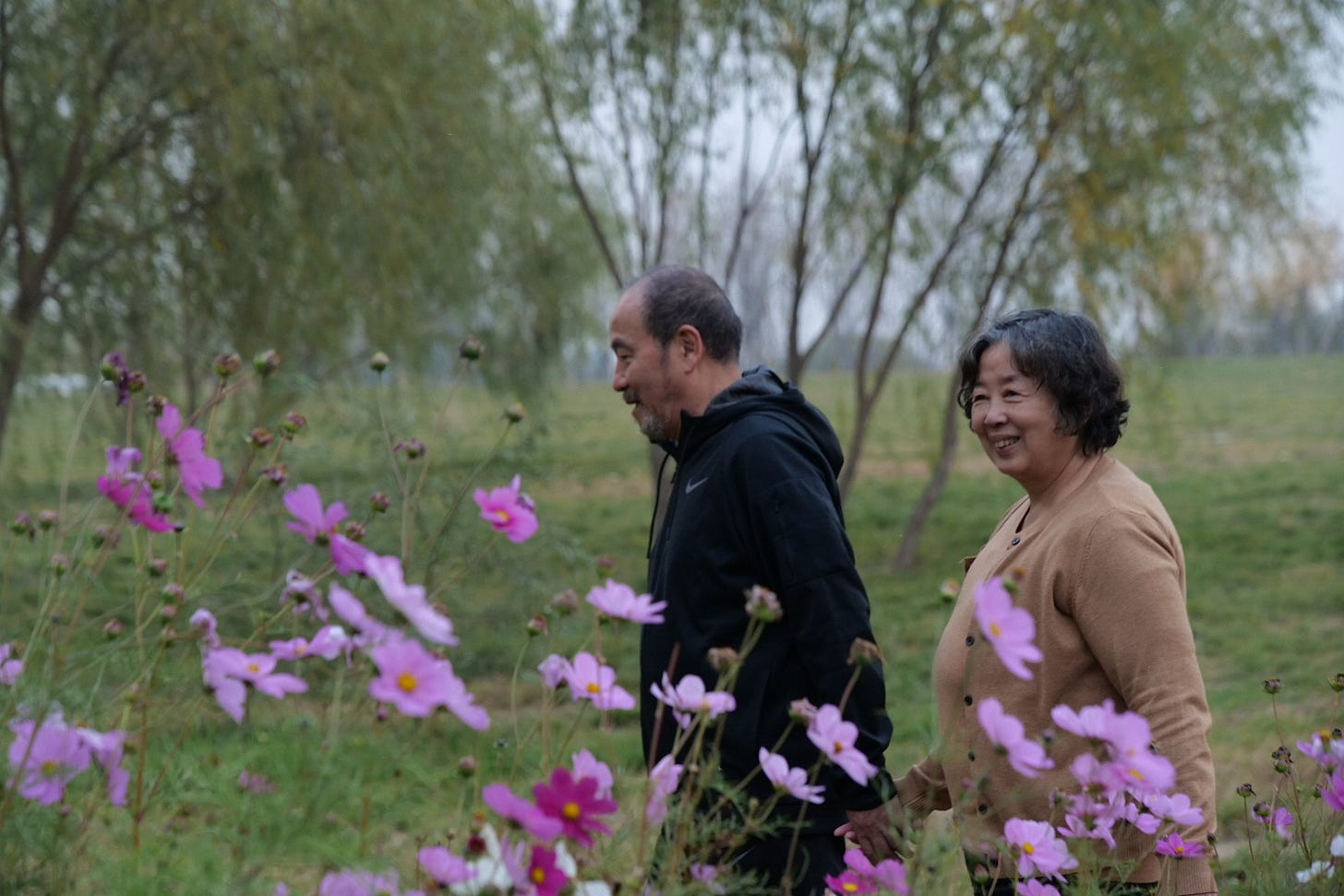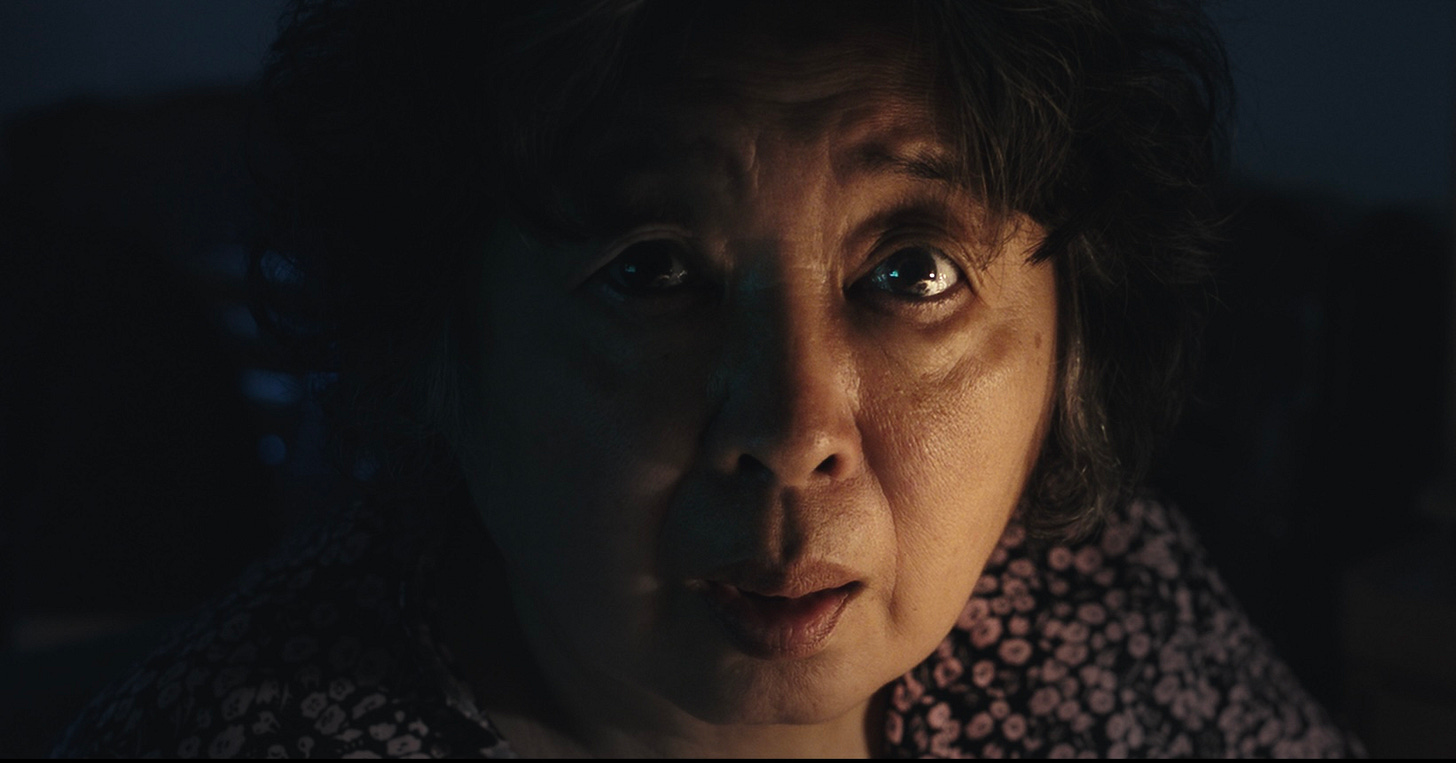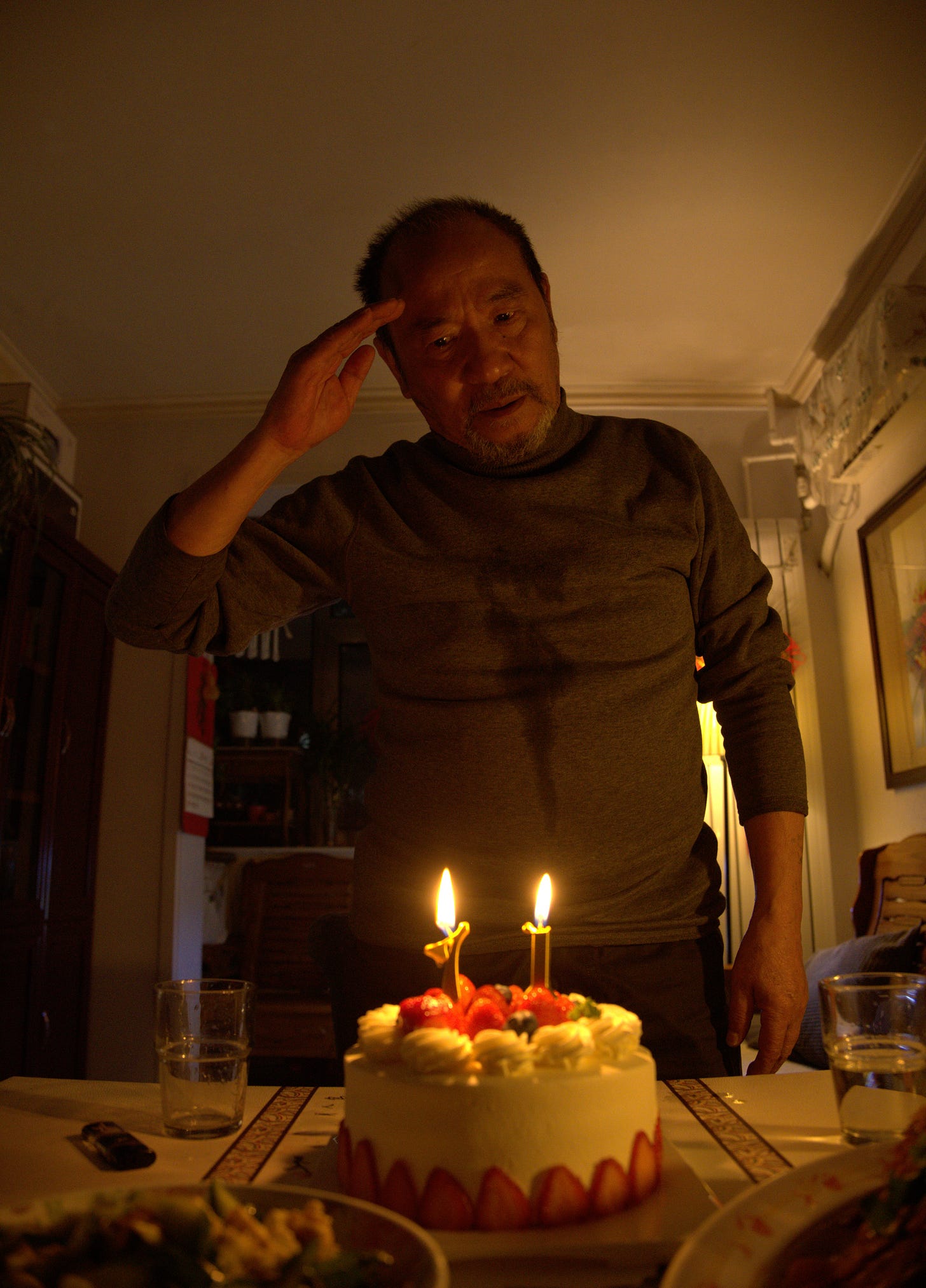BANR begins at the end, in more ways than one. An elderly man (Sui Li) on a phone video tells his wife (Baoqing Li) that if she is watching this, he can no longer be by her side. She barely comprehends, sitting beside other patients in similarly diminished states, as they stare out the window of a tall building, perhaps transfixed by daylight, or something they can't even process.
This is a dementia movie, and if the ending were not pre-ordained by virtue of the subject matter – it's not like Alzheimer's ever gets better, or even stays where it is – it is doubly destined by virtue of the fact that chronologically, this first scene is also the last scene in the movie. Anyone who screams “spoiler alert!” at me has never had a parent with dementia, I would assume.
The two most acclaimed dementia movies of my recollection are Michael Haneke's Amour and Gaspar Noe's Vortex, and both play out as existential horror films. You know where you're going, but both films dare you to take it. They also both star acclaimed actors recognizable to their audiences, while BANR pointedly uses amateurs — both are tactics that express the universality of death, but from different directions. As a viewer, you inherently ask yourself: Am I willing to put myself through two hours of this?
Well, bear in mind BANR is a Chinese film, and they don't tend to get away with the same level of despair and loose endings that French cinema does. The husband may have announced his death upfront, but for most of the movie, he's a lively protagonist, ceaselessly caring for his increasingly senile wife up to and beyond the point that he can no longer safely keep her at home. (He also memorializes a long-dead best friend, which foreshadows the pain, and then some, he knows is coming from his wife’s final journey.) Director Erica Xia-Hou, an actress making her first behind-the-camera feature, has a sunnier worldview than Noe and Haneke. Rather than finding the dread in life, she looks for the moments of life in the dread. It's a cliché to say of some of our elders that they have good and bad days, but you take the good, you take the bad, and them's the facts of life, and death, or something. Xia-Hou revels in the good moments, the brief returns to lucidity, and the memories that invade the present and make it confusing who's who.
The couple's house is small, but stocked efficiently, with nary a cubic foot wasted – dementia or no, nobody's going to get lost within it, so long as they realize where they are overall. That last part slowly becomes less and less of a guarantee, as the wife's hiding of food around the house in secret stashes develops into wandering off at inopportune times. We see the husband's stress, but also his sense of duty and legitimate devotion. It takes a toll, but unlike in so many western movies, the only foreshadowing is what we already know. There's no coughing up of blood on his part, or mini heart attacks – he gets tired, but that's par for the course. And he gets jealous when his wife, once situated in a home, develops an attachment to another male patient, and he challenges him to play pool at an obvious advantage.
Film production was interrupted for three months due to COVID, after which new locations had to be sought, and perhaps this accounts for the nonlinear structure, interspersing the wife's life in the hospital with her deterioration at home. It's not a tough “nonlinear” to follow; Xia-Hou idolizes Christopher Nolan, but this isn't a puzzle box on the level of Inception. The wife is always searching – for home (even when she's there); for her husband, who should look younger to her than he does; and for the past, which keeps receding, but occasionally comes back in joyous flashes.
I'm not clear why it's called BANR, but my best guess is it's the name of the medical institution, or something like that. Perhaps it's the all-caps acronym of something significant. (Google tells me it's the stock symbol for Banner Corp, a holdings company, which has nothing obvious to do with this.)
It's a nice change in many ways to see a movie that actively tries to look on the bright side of dementia, exalting the good moments and the joys of simple tasks and games that are still completable. Not wanting to face mortality much in the west, we tend to shie away from the downhill slide, like motion-sickness prone riders who'd like to escape Splash Mountain before the big drop. When my own father got dementia, one of his best friends told me he couldn't take seeing him in that condition, and to simply thank him for his years of friendship. Xia-Hou made this movie in part to depict universal experiences, but for many, it will be a universal experience they don’t wish to relive, cinematically or otherwise.
For those of us who have gone that distance, or in my case a small part of it – my uncle and aunt bore most of the burden – BANR feels like a show of respect to us, and shared struggle, which is more of a thing in China than in our supposed land of rugged individualists (read: selfish assholes, at least most of the time any more). It may well not be for you otherwise, and that's okay too.
BANR was the only Asian film selected for this year's Slamdance film festival. All images courtesy of ShangJia Picture Film Culture.
BANR is available for streaming at Slamdance Film Festival virtually till Mar 7th. The Virtual Festival will take place on the slamdancechannel.com from February 24–March 7, 2025.






